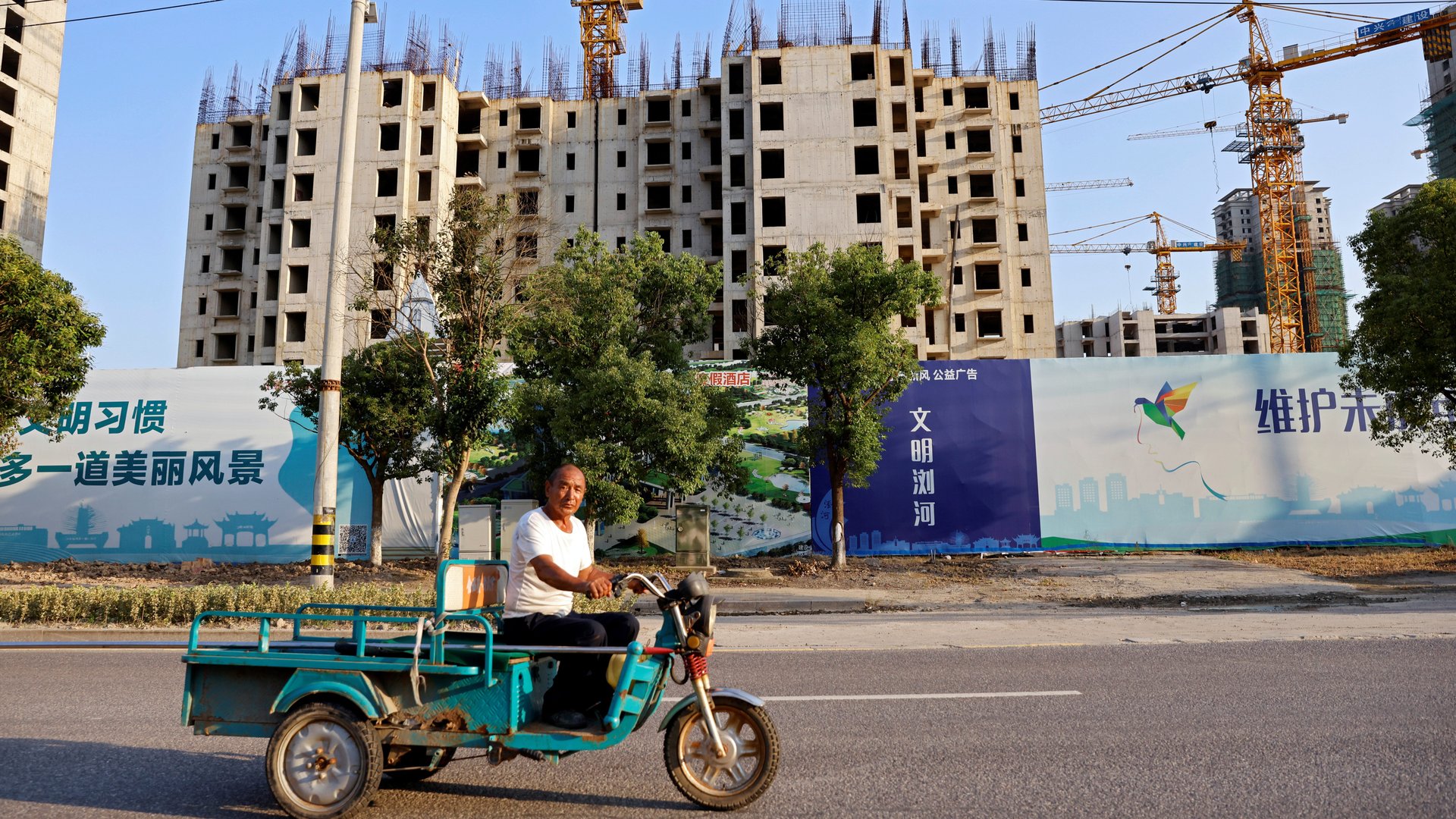Evergrande has missed some of its key bond payments. Now what?
By midnight US eastern time on Sep. 23, Evergrande, the debt-ridden Chinese real estate giant, was scheduled to have paid $83.5 million to investors overseas. By the following morning, at least some of these investors had not been paid, according to Reuters and the Financial Times—a critical milestone that renewed fears of Evergrande’s complete collapse.


By midnight US eastern time on Sep. 23, Evergrande, the debt-ridden Chinese real estate giant, was scheduled to have paid $83.5 million to investors overseas. By the following morning, at least some of these investors had not been paid, according to Reuters and the Financial Times—a critical milestone that renewed fears of Evergrande’s complete collapse.
Evergrande owed the $83.5 million as coupon payments on dollar-denominated bonds it had sold to offshore investors, and the Chinese government had advised the company to avoid defaulting. The previous day, the company did announce that it had negotiated privately with Chinese bondholders over a $36 million coupon payment that was also scheduled to be paid on Sept. 23. But that day passed in total silence, with no statements from Evergrande on how it planned to meet its obligations to its overseas bondholders.
Has Evergrande defaulted?
The terms of the bonds—with a face value of nearly $2.03 billion—allow Evergrande a grace period of 30 days to make its payment. So in the context of this set of payments, Evergrande will be in default only if it cannot pay out within the grace period.
But Thursday’s blown deadline is certainly not a sign of recovering health. Evergrande has also missed payments to a municipal government in the province of Anhui, the Financial Times reported. And it has more deadlines coming up. Evergrande owes another $47.5 million in coupon payments to offshore investors next week; in total, it has to disburse $669 million in coupon payments by the end of the year. And next year, Evergrande has to pay back $7.4 billion when a number of its bonds mature.
“We’re a long way from resolving Evergrande’s payments problem,” said Julian Evans-Pritchard, a senior China economist at Capital Economics, on a webinar on Thursday morning. “It’s essentially facing a liquidity crisis. It may well be that it’s so over-extended that, without some support, it will eventually default on more of its obligations.”
What will the Chinese government do about Evergrande?
The lapsed payments prompt the question once again: What will China’s next move be? Although the government has put together a team of accountants and lawyers to examine Evergrande’s books, it hasn’t yet announced any impending restructuring of the company’s debt. And although China has also periodically injected cash into the banking system, it hasn’t said anything about bailing Evergrande out.
The government will feel the keenest urgency to act only if Evergrande’s troubles threaten to set off a systemic crisis—the so-called “contagion” in the financial sector. In his webinar, Evans-Pritchard said that the sector might well be able to absorb even a total Evergrande collapse.
“If you look at the offshore bonds, the main holders are all big global banks and asset holders” like UBS and HSBC, Evans-Pritchard said. In China, “Evergrande has taken loans from around 20 commercial banks, and if you look at the biggest three, their exposure to Evergrande is less than 3% of outstanding loans.” There could be smaller regional banks that have made some loans to Evergrande, he added. “We may not know about those, and those could run into problems.” But the government could act to save those banks, rather than saving Evergrande itself.
Protecting China’s banks from an Evergrande collapse
One of China’s main priorities will be to keep the interbank system from buckling—and the government’s particular advantage, as compared to the US government’s during the 2008 crisis, is its absolute control over banks. “All the major actors are state-owned, so the government will likely step in to make sure there’s plenty of liquidity going around,” Evans-Pritchard said.
As a result, the Chinese government can prevent the kind of abrupt re-pricing of counterparty risks that occurred during in the wake of Lehman Brothers’ collapse: banks wary of lending to each other, or prepared to do so only at high cost. “Even if there are concerns about counterparty risk, the government can step in and say: ‘Well, you just have to keep lending to each other.'”